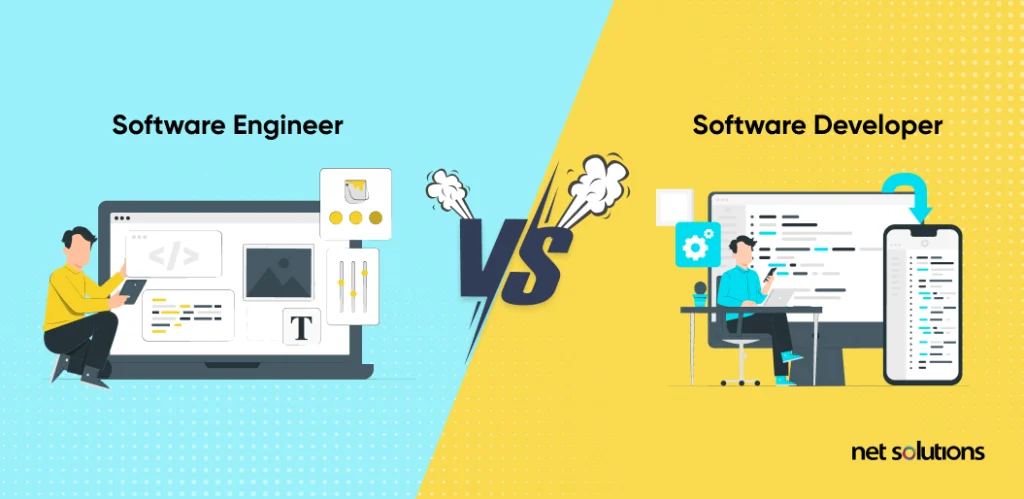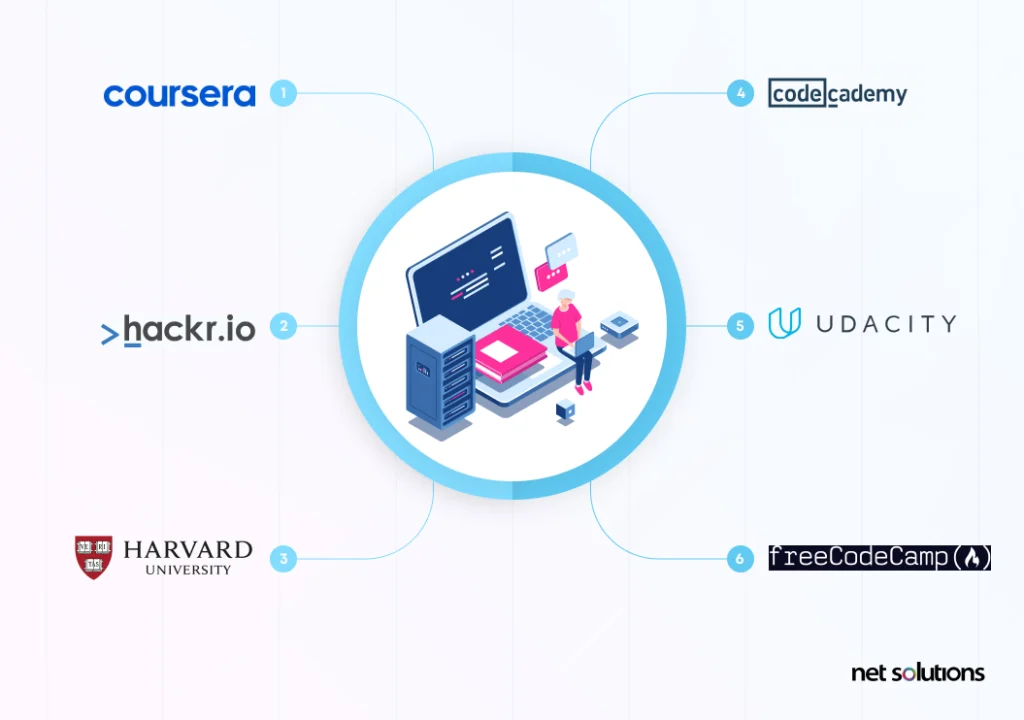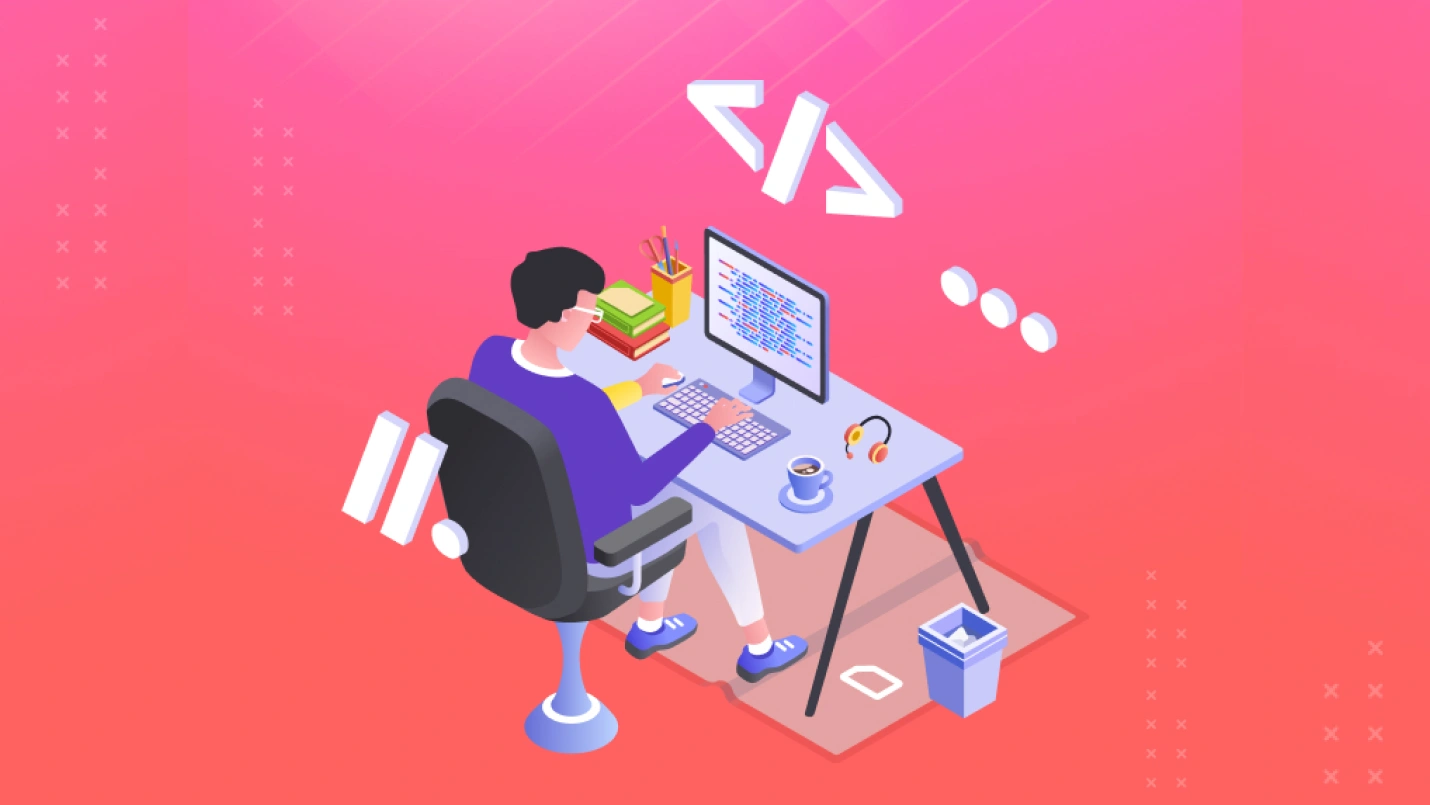Summary: Software developers are in high demand, with a global talent shortage for skilled software developers. Organizations have increased the compensation and reduced the skills & requirements for software development positions. Jobs evade the typical University-educated software engineers, and several candidates come forth with the knowledge attained from special institutes. Or maybe even self-taught. What is the best way to learn software development, and which language should you know? This guide will offer practical tips on the core concepts and skills needed to code.
Software is present in every Industry. Organizations of all scales & magnitude work on software for their technological & other projects. Software assists organizations in catering to their client need, smoothens the workflow, helps in data storage, manages remote access, and builds data security. The dynamics of businesses have led professionals to specialize in custom software development and commercial-off-the-shelf software.
The tangential benefits of software development are enhanced communication, improved sales & services, sound data analytics, and a well-planned marketing strategy. Given all this, it is essential to hire the right kind of developers to build & maintain the appropriate software for an organization.
“Hiring managers predict that recruiting qualified developers will present their biggest recruitment challenge of 2022.” – Owen Hughes, ZDNet.
Types of Software Developers
With so many languages, technologies, tools, and market trends, every software developer will come to the table with diverse skills and knowledge (sometimes referred to as a developer’s “tech stack”). The software can be developed for various targets, from mobile devices to websites to game platforms. Further, developers may only work on a specific aspect of the software, making it more relevant to talk about software developers by this specialization of skills:
1. Front End Developer
A front-end developer is a software developer who focuses on the user interface of an application. A front-end developer must know markup and web development languages (e.g., HTML and JavaScript) as well as front-end frameworks (e.g., React, Flutter)
2. Back End Developer
A back-end developer works on an application’s underlying business, logic, and data – all those software functions that the user cannot see that drive how the application works. A back-end developer may have knowledge of databases, servers, systems integration, CRM, or specialized skills in areas such as security.
3. Full-Stack Developer
As one would expect, a full stack developer knows both the front and back end, able to both code and manage the technologies needed to create the infrastructure and UI for the software.
4. DevOps Engineer
DevOps engineers help manage the operation of software development, focusing on integration, delivery, and deployment as well as ongoing security, performance, and availability. DevOps engineers typically have high systems knowledge and experience in testing and often benefit from more formal computer science, engineering, informatics, or mathematics degrees.
5. Mobile Developer
A software developer specializing in mobile development will have specific skills in developing apps for mobile devices, either broadly for cross-platform apps or specifically for a single platform (e.g., iOS or Android).
6. AI/Machine Learning Developer
A software developer specializing in machine learning or artificial intelligence, leveraging specialized data science, mathematics, and statistics knowledge.
Software Developer vs. Software Engineer

A software engineer and a software developer may perform many of the exact job requirements and carry the same skills – in many instances, the two terms are used interchangeably. However, to be specific, a software developer is often involved in smaller projects or niche areas such as mobile app development and focuses only on programming (coding, testing & debugging). In comparison, a software engineer works on larger projects that require more of an “architectural” approach to the entire system, with specific skills that could include data analytics, UI development, artificial intelligence or machine learning, testing, and scaling. A software engineer typically has formal training that could consist of an engineering or computer science degree.
Skills to Support a Software Development Learning Roadmap
There is no ideal software developer, but many skills can help you succeed in software development. These include:
- Strong memory for knowledge to support learning languages and technologies
- Eagerness to learn and stay on top of changing trends (for life!)
- Problem-solving skills to find clean, simple approaches to coding and testing
- Accuracy and attention to detail to help avoid errors and bugs
- Strong communication skills, ideally suited to the Agile methods of a custom software development company
Mathematical aptitude - Time management and organization skills
- Knowledge of several programming languages
- Knowledge of shared platforms and tools such as Amazon Web Service (AWS), Google Cloud Platform (GCP), Microsoft Azure, Git, and Github, and databases such as MySQL
How to Become a Software Developer
To answer the question of “how to become a software developer,” one must first understand that many programming languages and technologies are available. Maybe also study why software projects fail inspite of these resources available – analysis can give direction to sharpen your skills and help improve the success rate! There are over 700 programming languages in existence – though, thankfully, some are more widely used than others. However, there will be many opportunities for software developers with skills for high-demand languages, tools, and frameworks – and an eagerness to keep learning.
So, the question then is, how do you learn software development? And what is the ideal software development learning roadmap?
Are there Software development checklists that you can work with?
The best way to learn software development is to determine the ideal learning path (traditional, online, or self-directed) and gain skills and experience to support the knowledge one needs to become a particular software developer.
What Is the Ideal Learning Path for an Aspiring Software Developer?
The traditional approach to learning software development is to attend a college or university for a computer science degree. This degree communicates a foundation of computer science and math knowledge. However, many other degrees and life experiences can give the same basic training. There are many online courses (free and paid) to learn software development independently or see if software development is a good fit.
For those who are searching for how to become a software developer independently, the typical software development learning roadmap is to:
- Take a general introductory course about software development
- Choose which language to learn for software development and take more specific courses in those languages
- Build a portfolio of apps to learn frameworks and libraries and test skills in coding and testing
- Become active in online communities on Twitter, Reddit, Stack Overflow, Medium, or Quora to stay on top of new learning resources & contribute to open source
Some people will have a natural talent for software development, making learning easier and faster and helping them code and debug software faster than others. Still, all software developers must put in the time to gain knowledge and refine skills with endless practice.
Best Way to Learn Software Development Online
Some well-known and reputable resources support the software developer learning path, including the following courses for introductory computer science knowledge (look specifically for 101, Intro to Computer Science, or Learn to Code courses).
Most introductory courses will provide a general overview of computer science knowledge and an introduction to software development in C, Python, and web development (HTML, CSS, Java). Various free options and paid courses come with learning and mentor support. Some of the most popular online courses to learn software development include:

Most online courses are developed for a specific duration (e.g., 10-12 weeks) but are designed to be self-paced. After these introductory courses, most online custom software development programs will offer a wealth of additional courses to continue into more specialized areas by language or subject (e.g., web development, data science, machine learning). Some courses will offer certifications in a more structured curriculum vs. the lack of transparency in self-learning options.
Which Language should be learned for Software Development?
In a formal education course, the curriculum will focus on basic languages and the most in-demand options in the market. In a self-directed environment, one of the most important lessons learned in software development is carefully considering not only which are the best programming languages, but also which languages help future job potential.which languages help future job potential.
The primary programming languages to learn are C, C++, Java, HTML, and Python. These are common languages for any beginner to know and provide foundational skills that can be used to learn other languages. The following options would be driven by personal needs (perhaps an app idea) or market trends.
The most in-demand languages for 2024 include JavaScript, Java, and Python.
How Long Does It Take to Learn Software Development?
To answer the question of how long to learn software development – this differs by the type of software development path chosen and the pace at which learning is being done, whether full-time or part-time. The speed of learning software development can vary significantly by individual, by choice of which language to learn for software development, and by the previous experience (if any) with basic software development concepts.
A more traditional computer science or engineering degree will take an average of 4 years, plus any prior work experience necessary to secure a job. For independent learners, it takes 3-6 months to learn the basics of software development and 9-12 months to become proficient enough to secure a job.
The best way to learn software development is to choose a software development learning path and take the first steps on that journey. However, it is essential to note that the software development learning path is never “complete” – one must continue to learn new technologies, frameworks, tools, and even languages to remain competitive as a software developer.
Frequently Asked Questions
To be a successful developer, besides technical expertise, an individual needs to be quick on learning & adapting, be open to providing speedy feedback and have the skills to add value to workflows & processes for any business.
Programming & coding do revolve around numbers, algebra, calculus, statistics, and probability theory. Therefore, it would be presumptuous to negate the importance of mathematics for software development. Yes, you must understand and be able to grasp these concepts.
Besides tight deadlines, software developers could face the following impediments:
- High maintenance requirements
- Constant feedback & iterations
- Errors during the project’s last stages
- Faulty interpretation of the instructions
- Unsupportive teams or project leaders
Security and coping with constantly evolving technology are other issues.



